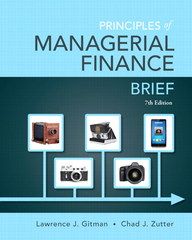Question
Suppose the Schoof Company has this book value balance sheet: Current assets $30,000,000 Current liabilities $20,000,000 Notes payable 10,000,000 Fixed assets 70,000,000 Long-term debt 30,000,000
Suppose the Schoof Company has this book value balance sheet:
| Current assets | $30,000,000 | Current liabilities | $20,000,000 | |||
| Notes payable | 10,000,000 | |||||
| Fixed assets | 70,000,000 | Long-term debt | 30,000,000 | |||
| Common stock (1 million shares) | 1,000,000 | |||||
| Retained earnings | 39,000,000 | |||||
| Total assets | $100,000,000 | Total liabilities and equity | $100,000,000 |
The notes payable are to banks, and the interest rate on this debt is 10%, the same as the rate on new bank loans. These bank loans are not used for seasonal financing but instead are part of the company's permanent capital structure. The long-term debt consists of 30,000 bonds, each with a par value of $1,000, an annual coupon interest rate of 9%, and a 25-year maturity. The going rate of interest on new long-term debt, rd, is 10%, and this is the present yield to maturity on the bonds. The common stock sells at a price of $70 per share. Calculate the firm's market value capital structure. Do not round intermediate calculations. Round the monetary values to the nearest dollar and percentage values to two decimal places.
| Short-term debt | $ | % | |||
| Long-term debt |
| ||||
| Common equity |
| ||||
| Total capital |
Step by Step Solution
There are 3 Steps involved in it
Step: 1

Get Instant Access to Expert-Tailored Solutions
See step-by-step solutions with expert insights and AI powered tools for academic success
Step: 2

Step: 3

Ace Your Homework with AI
Get the answers you need in no time with our AI-driven, step-by-step assistance
Get Started


